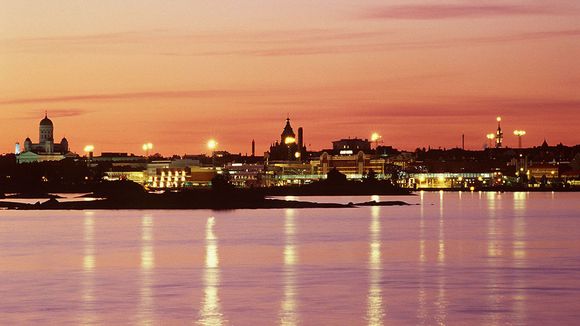Helsinki, Finland among world’s top 10 liveable cities

Helsinki has been ranked among the world’s ten most liveable cities by the Economist Intelligence Unit. The Finnish capital, the only Nordic city on the list, is ranked second in Europe after Vienna.
The Economist Intelligence Unit’s 15th Global Liveability Ranking assessed 30 factors divided among five areas to assess quality of life in 140 cities worldwide. The five areas included stability, infrastructure, education, healthcare and environment.
Leading the 2017 index, the world’s most liveable city, Melbourne in Australia, scored full marks (100 points) for health care, education and infrastructure. Its overall score was 97.5 out of a possible 100 points.
The Austrian capital Vienna placed second in the index with a total of 97.4 points, followed by Canada’s Vancouver with 97.3. Toronto was ranked fourth, while another Canadian city, Calgary, tied with Australia’s Adelaide for fifth position. Perth in Australia ranked seventh, ahead of Auckland New Zealand in eighth place and Hamburg, which rounded out the top 10 after Helsinki.
Helsinki, which came in ninth with 95.6 points, scored full marks for stability and health care, but posted weak results for cultural experiences and the environment. The Nordic city received fairly high marks for education though – 91.7, while in terms of infrastructure, the city was awarded 96.4 points.
Climate and lack of private schools
The evaluation of cultural and environmental factors looks specifically at climate, corruption and the degree of censorship, as well as religious restrictions, sports and cultural activities and the availability of food and drink, goods and services.
In spite of its much-vaunted public schooling system, Helsinki saw its education score decline because of the short supply of private schools.
Overall, the publication looked at three areas in assessing educational opportunities: the level of public education, the availability of private schooling and the level of private education. For travellers and migrants, access to private education may play a more important role than for long-term residents.
Stockholm in neighbouring Sweden fared poorly in the index, coming in 26th with 92.1 points. The reasons for its decline include the terrorist truck attack that took place in the heart of the city in April, killing five people and injuring 14 others.
Helsinki has appeared in the Economist’s top 10 several times, ranked tenth last year and eighth the year before.
Related stories from around the North:
Canada: Plenty of water? Canadian Arctic communities on the verge of running out, Radio Canada International
Finland: Helsinki, Finland set to become world’s busiest sea passenger port, Yle News
Iceland: Iceland most peaceful country in the world: study, Eye on the Arctic
Norway: Running Tromso, Norway – the successes and the challenges, Eye on the Arctic
Sweden : Norway and Sweden surpass Finland in 2017 press freedom rankings, Yle News
Russia: New rise in cross-border travel between Russia and Nordic countries, after significant drop, The Independent Barents Observer
United States: Yupik Alaskan community celebrates village life, Alaska Dispatch News



